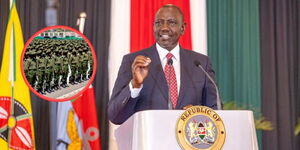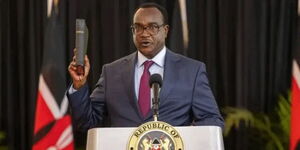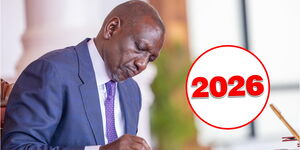First Lady Margaret Kenyatta, who is currently in the US, on Wednesday secured crucial support for the Beyond Zero Campaign after renowned health researcher Mark Dybul promised to support the initiative.
Dybul, who was recently in Kenya to discuss support for the Universal Health Coverage, pledged to use his wide experience as a global health expert to enable more Kenyans access quality healthcare through the Beyond Zero initiative.
“The work you are doing to take healthcare services to the communities at the grassroots level is quite incredible and we will support it in the best way we can,” Dr Dybul remarked.
[caption caption="Health Researcher Mark Dybul"] [/caption]
[/caption]
He is the Faculty Co-Director of the Center for Global Health and Quality, and Professor in the Department of Medicine at Georgetown University Medical Center.
During a series of meetings, the First Lady endorsed the demand for quality healthcare as a key component in promoting Universal Healthcare Coverage in the Sustainable Development Goals (SDG) era.
She added that even as efforts to escalate access to health services gain momentum, the issue of quality care should not be overlooked.
“Increased delivery of healthcare should go hand in hand with the provision of high-quality services,” she noted.
Margaret was speaking on Wednesday at the Harvard T. H. Chan School of Public Health in Boston, US, when she met Dr Margaret Kruk, MD, Associate Professor of Global Health in the Department of Global Health and Population.
Dr Kruk is also the Chair of the Lancet Global Health Commission on High-Quality Health Systems in which the First Lady is a commissioner.
At the meeting – attended by Ms Constance Gakonyo, the Chief of Staff in the First Lady’s office, and Kenya’s Ambassador to the US Robinson Njeru Githae among others – Dr Kruk shared her commission’s findings contained in a report titled “High quality systems – time for revolution”.
The report will be officially launched on September 6 this year in Washington DC.
In her presentation, Dr Kruk said good health systems could save seven million lives each year in low and middle-income countries.
She added that improving quality should be a core component of the Universal Health Coverage initiative, alongside expanding coverage and financial protection.
[caption caption="Margaret Kenyatta with Dr Margaret Kruk at Harvard's School of Health"] [/caption]
[/caption]












